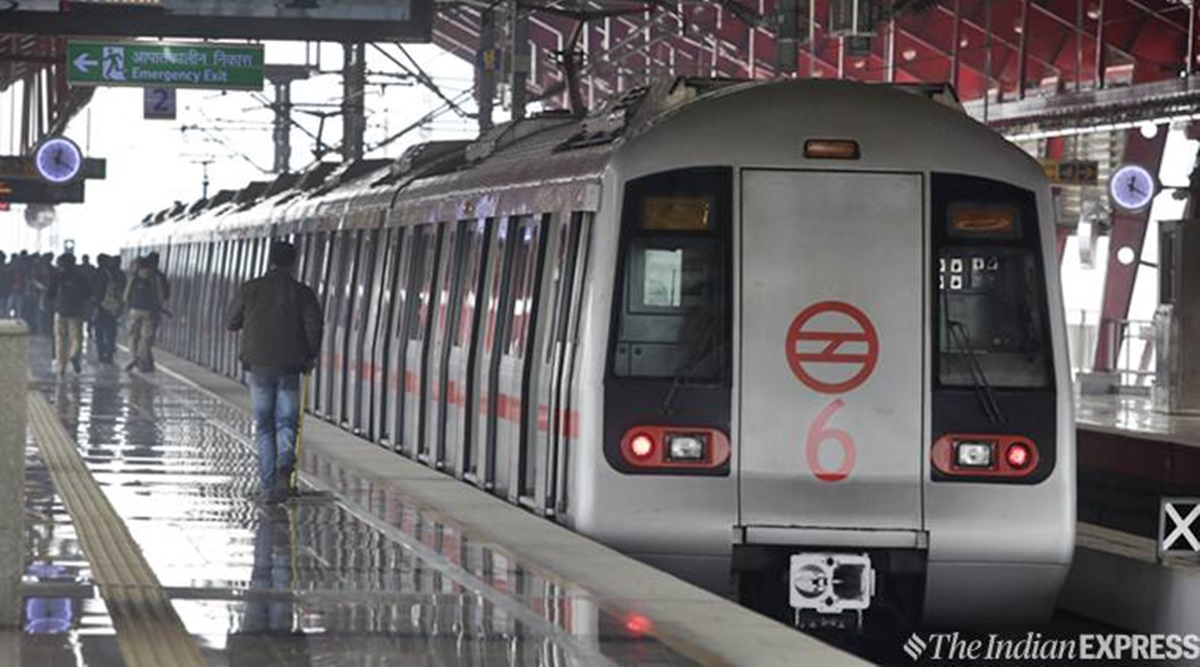 Over five months after the lockdown halted its services, Delhi Metro, the public transport lifeline of the capital, will restart operations on September 7. (File photo)
Over five months after the lockdown halted its services, Delhi Metro, the public transport lifeline of the capital, will restart operations on September 7. (File photo)Over five months after the lockdown halted its services, Delhi Metro, the public transport lifeline of the capital, will restart operations on September 7.
At a press conference, Union Minister for Housing and Urban Affairs Hardeep Singh Puri outlined the protocol that will cover every individual entering the Metro system from next week.
Will trains start running on all lines on September 7?
No, Delhi Metro will open in three stages. Under stage 1, train services will start on the Yellow Line and Rapid Line on September 7; Blue Line and Pink Line on September 9; Red, Green and Violet on September 10. Trains will be available between 7 am to 11 am and 4 pm to 8 pm. In Stage 2, from September 11, Magenta and Grey Lines would also be made operational and service hours extended by two hours each in morning and evening. From September 12, services will resume between 6 am and 11 pm, and Airport Express Line would reopen.
What will change for the commuters at stations?
Firstly, only a limited number of entry gates will open. Stations usually have four entry and exit gates, with interchange stations like Rajiv Chowk and Kashmere Gate having more. After Metro restarts, most stations will allow commuters to enter and exit through two separate gates. At frisking points, passengers will undergo thermal screening and those showing symptoms like fever or flu will be directed to the nearest medical centre and their contact will be shared with the local administration. Masks will be mandatory and Metro will provide masks to those not wearing them. Hand sanitisers will also be made available. Commuters will be asked to use the Aarogya Setu app.
What about tokens and smart cards?
Tokens are being discontinued and everyone will be expected to use smart cards. Cash transactions will not be allowed so anyone requiring a top-up or card recharge will have to use credit or debit cards or e-wallets like Paytm or Google Pay. The smart card, ‘Autope’, will be available, which can be linked with bank accounts. The new cards will automatically top-up a customer’s card upon swiping it at the fare collection gates whenever the balance goes below Rs 100. Older smart cards can also be equipped with this feature.
What will be the changes inside trains?
Alternate seats will have to be left vacant and a distance of one metre will have to be maintained between those standing. Trains will stop for up to 30 seconds more than usual at stations to ensure social distancing. Intake of fresh air will be 50 to 60% more so one can expect less cooling. Air filters will be cleaned two times more than before using a 5% bleach solution. Hand rails, poles, seats will be disinfected using Virex II 256.
What are the other important changes?
Trains will skip stations in containment zones. A station with overcrowded platforms or people violating social distancing will also be skipped. At terminal stations such as Huda City Centre or Dwarka Sector 21, trains will halt for a longer duration, keeping all doors open to let fresh air in. There will be constant monitoring of passenger behaviour from control rooms and anyone found violating norms can possibly be “named and shamed” through public announcement systems.